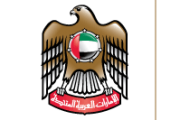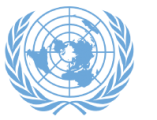Under Emirati and Latvian leadership, the UN General Assembly successfully concluded the ten-year review process of the World Summit on the Information Society and agreed on a way ahead towards a people-centered, inclusive, and development-oriented framework.
From July through December 2015, Ambassador Lana Nusseibeh, Permanent Representative of the UAE to the UN, and Ambassador Janis Mazeiks, Permanent Representative of Latvia to the UN, co-facilitated the 193 Member States of the UN, as well as nongovernmental stakeholders in assessing progress made on information communications technology (ICT) for development since the World Summits on the Information Society held in Geneva (2003) and Tunis (2005) and addressing emerging challenges.
At a High-level meeting of the General Assembly on 15-16 December 2015, Member States agreed on the WSIS+10 outcome document which establishes a series of priorities that will guide the work of the UN System, Member States, and nongovernmental stakeholders, in the areas of ICTs for development, Internet governance, human rights, and cybersecurity. The document also paves a path to harnessing the potential of ICT for sustainable development.
“The UAE long recognized the potential of ICTs as a critical driver of development, and our national experience illustrated the potential of ICTs for innovation and economic transformation”, said Ambassador Nusseibeh. “However, the potential of ICTs still remains inaccessible for many people worldwide,” she added.
Throughout the negotiations, access to ICTs was cited as critical to the achievement of the Sustainable Development Goals by 2030. The WSIS+10 outcome document sets new aspirations to bridge the gap in accessibility to ICTs by striving to provide Internet access to all people globally, up from about 40 percent today, and eliminating the inequalities in ICT access. The document specifically calls for immediate actions to achieve gender equality in Internet users by 2020.
Member States acknowledged the ambitious vision of WSIS requires the full engagement of all stakeholders, in their respective roles and responsibilities, particularly in addressing challenges of cybersecurity and ensuring human rights in the context of ICTs. Throughout the process, the co-facilitators highlighted the importance of an inclusive approach by engaging with non-governmental stakeholders. In addition to consultations hosted by the President of the General Assembly in New York, Ambassadors Mazeiks and Nusseibeh took part in the annual meeting of the Internet Governance Forum in Brazil in November to receive inputs from key actors from governments, the private sector, civil society, and academia.
At the Co-facilitators Welcoming Panel moderated by Ambassador Nusseibeh on 15 December, thought-leaders from the ICT sector, governments and multilateral institutions discussed ICT innovation and international priorities for the coming years. Participants included Mitchell Baker, Chairwoman of the Mozilla Corporation and the Mozilla Foundation; Fadi Chehadé, President and CEO of the Internet Corporation for Assigned Names and Numbers (ICANN); HE Siyabonga Cwele, Minister of Telecommunications and Postal Services of South Africa; and Günther Oettinger, European Commissioner for Digital Economy and Society; and Eric Schmidt, Executive Chairman of Google.
Attended by high-level representatives from governments, the private sector, academia, and NGOs, the General Assembly High-level Meeting on 15-16 December was a testament to the importance that all stakeholders attribute to a consensus-based conclusion of the review process.


